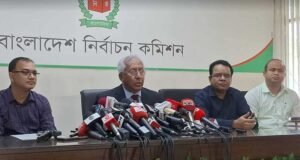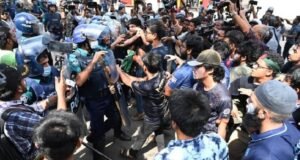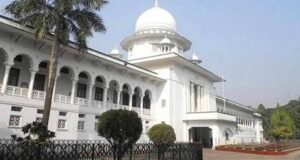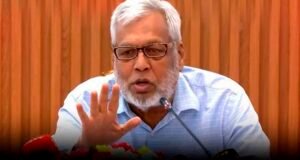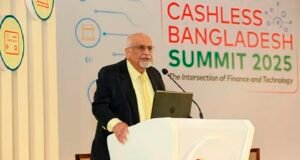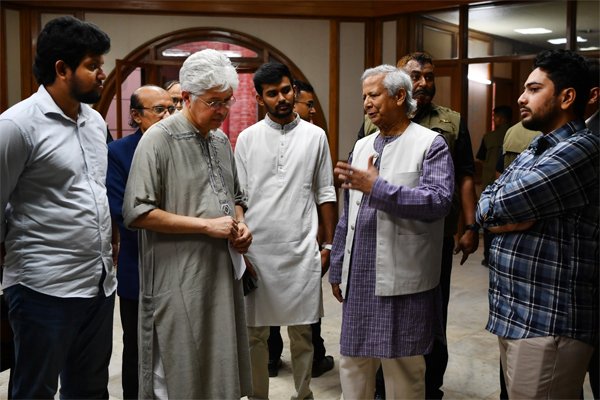
Chief Adviser Professor Muhammad Yunus on Monday asked advisers to fast track the construction of the museum for the July-August mass uprising at the Gonobhaban.
The Chief Adviser gave the instructions when he visited the Dhaka palace where ousted dictator Sheikh Hasina lived during the past 15 years, which became a symbol of repression and her brutal rule, reports UNB.
“The museum should preserve the memories of her misrule and the anger people expressed when they ousted her from power,” Prof Yunus said as he inspected the ruins.
Hundreds of thousands of protesters stormed the Gonobhaban on August 5, moments after Hasina fled Bangladesh and took refuge in India.
Protesters marked their anger in the Gonobhaban walls and rooms by drawing graffitis and writing protest notes such as Khuni Hasina (killer Hasina).
The Chief Adviser said a replica of the Aynaghar (Mirror House) where Hasina’s notorious security agencies secretly detained hundreds of dissidents and opposition activists should also be built at the Musuem at Gonobhaban, said the Chief Adviser’s press wing.
The Aaynaghar should remind visitors of the tortures suffered by the secret prisoners, he said.
Advisers Adilur Rahman Khan, Nahid Islam, and Asif Mahmud accompanied the Chief Adviser during the visit.
Professor Yunus told the advisers to consult with experts on museums. He told them to finalise proposals for the museum by December this year.
Nahid Islam, a student leader turned adviser, said misdeeds of the Hasina regime, starting from 2009, will be meticulously preserved at the museum.
He said they were consulting with experts from other countries to find out how they constructed memorials commemorating their revolutions and uprisings.
Mahfuj Alam, special assistant of the Chief Adviser, was also present during the visit.
 Weekly Bangla Mirror | Bangla Mirror, Bangladeshi news in UK, bangla mirror news
Weekly Bangla Mirror | Bangla Mirror, Bangladeshi news in UK, bangla mirror news


